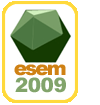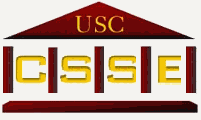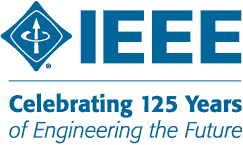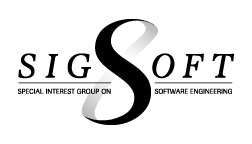ESEM Keynotes
Fred Brooks: Collaboration and Telecollaboration in Designs
 A new characteristic of design in the 20th century is the dominant use of teams to do design. We design with teams both because we are in a hurry and because our creations require more skills than one mind can master. Yet we want our designs to have excellence, and that requires conceptual integrity.
Achieving conceptual integrity in team design is then a formidable challenge.
Telecollaboration is now, in the 21st Century, not only possible but even fashionable. The mantra of "telecollaboration" assumes implicitly that collaboration is a good thing per se. The more one collaborates, the better. This is far from self-evident; it probably is not true. Nevertheless, there are parts of the design process where collaboration not only shares out the work, but also produces a better design. Here telecollaboration can be most fruitful. Analysis of these aspects of design inevitably generates opinions on how design should be done and taught.
A new characteristic of design in the 20th century is the dominant use of teams to do design. We design with teams both because we are in a hurry and because our creations require more skills than one mind can master. Yet we want our designs to have excellence, and that requires conceptual integrity.
Achieving conceptual integrity in team design is then a formidable challenge.
Telecollaboration is now, in the 21st Century, not only possible but even fashionable. The mantra of "telecollaboration" assumes implicitly that collaboration is a good thing per se. The more one collaborates, the better. This is far from self-evident; it probably is not true. Nevertheless, there are parts of the design process where collaboration not only shares out the work, but also produces a better design. Here telecollaboration can be most fruitful. Analysis of these aspects of design inevitably generates opinions on how design should be done and taught.
Marvin V. Zelkowitz: The science of software engineering
Software engineering researchers, especially those within the academic community, view themselves as scientists extending the frontiers of their science with new models and discoveries. But how do empirical software engineers or the software engineering community itself, fit within the confines of the scientific establishment? What is a science and how do the rules and procedures of our ESEM community adhere to established scientific paradigms that have been established over the last 500 years? At times we can be very proud of what we have accomplished; at other times not so proud. What is the role of empirical studies and experimentation in our quest for continual improvement of our science? In this talk we will discuss the role of experimentation and model building in the context of scientific theory formation and include examples from several activities that have tried to understand and improve the effectiveness of scientific studies within the software engineering domain.
Biography
Dr. Marvin V. Zelkowitz is a research professor of Computer Science at the University of Maryland in College Park Maryland. Prof. Zelkowitz received the MS and PhD degrees from Cornell University in Computer Science in 1969 and 1971, respectively, and the BS in Mathematics from Rensselaer Polytechnic Institute in 1967. He has been at the University of Maryland for 39 years and during that time his research interests have included compiler design, technology transfer, empirical studies, and, more recently, high performance computing. He was one of the directors of the NASA Software Engineering Laboratory, from 1976 until 2002, where many of the current ideas concerning empirical studies were developed.
Dr. Zelkowitz is a fellow of the IEEE, a Golden Core member of the IEEE Computer Society, and a member of ACM. He is the series editor of Elsevier's "Advances in Computers" book series, on the editorial board of Empirical Software Engineering, and a former co-Director of the Fraunhofer Center for Experimental Software Engineering in Maryland, which he founded with Dr. Victor Basili in 1998. He is a past chair of the Computer Society's Technical Council on Software Engineering and of ACM SIGSOFT. He can be contacted via marv@zelkowitz.com









